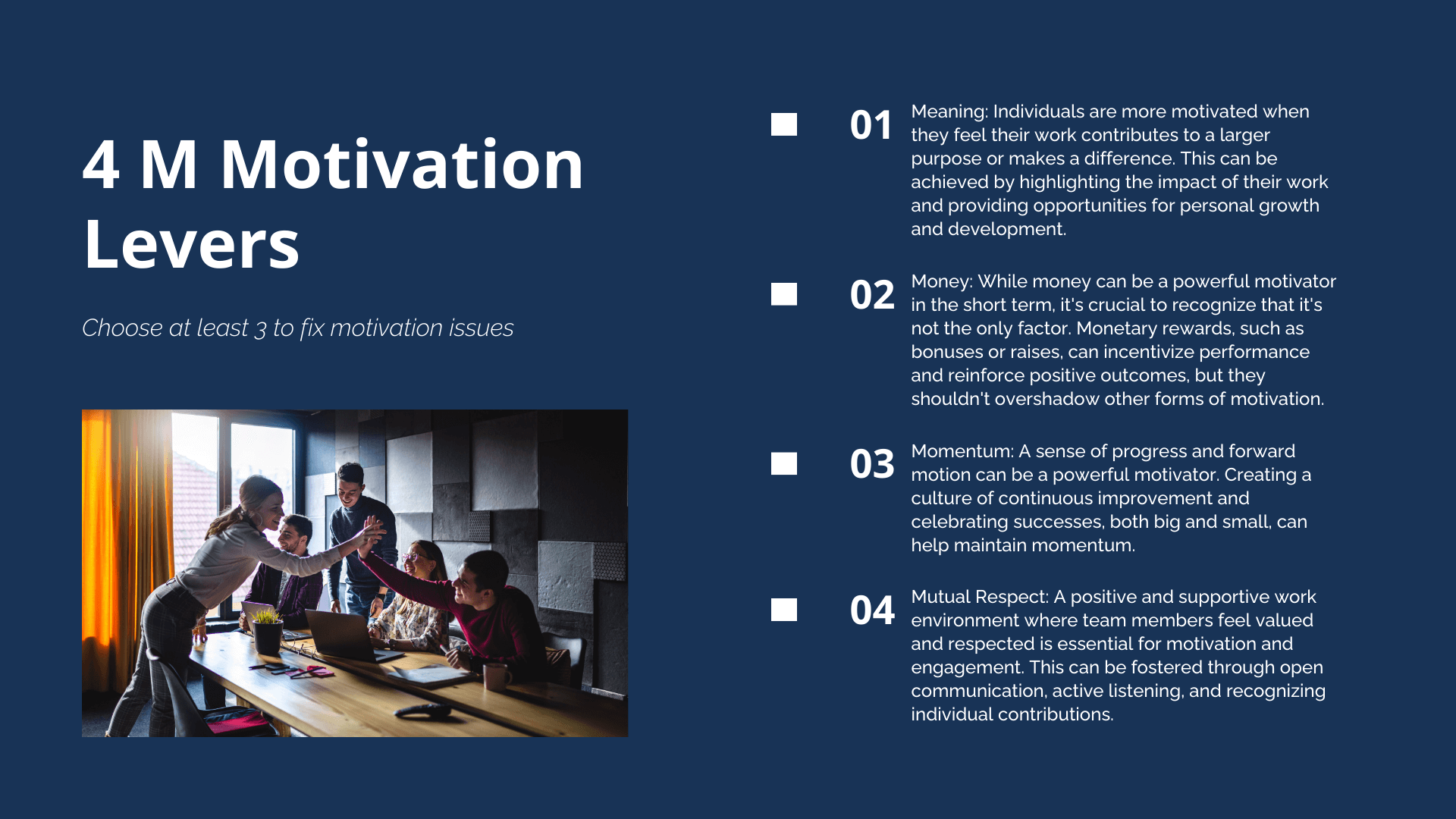Most people hate giving constructive feedback. It’s awkward. It can lead to conflict.
You might wonder—Is it worth it? Yes. Always.
However, you need to reframe how you see feedback. It’s not a confrontation. I believe it’s a gift. When you hold back feedback, you rob your team of the insights they need to grow. You deny them the clarity they crave. Done well, feedback is gold—it uncovers blind spots and accelerates growth.
Here’s the truth:
Most managers know feedback matters! They’ve taken the trainings. They’ve read the books, but many still don’t give real, honest feedback. Why?
Because they confuse feedback with praise. A “Nice job” or a quick pat on the back feels easier, but feedback isn’t just kudos.
Feedback is insight that changes behavior.
It’s the lever that helps your team find meaning, motivation, and mastery in their work. Let’s break it down.
Why Feedback Creates Meaningful Work
Employees want to feel fulfilled and in fact to be motivated, its needed as it underpins the four motivation levers:

To unlock true motivation, you need at least three. Feedback fuels all four.
Here’s how:
1. Feedback Drives Mastery
Humans crave mastery. From childhood, we’re wired to improve. Feedback makes that possible.
It helps people:
- Spot what’s not working
- Adjust their approach
- Get better, faster
Mastery boosts confidence. Confidence builds momentum. Momentum drives team energy and motivation. Nothing more satisfying then getting something out the door and completed! Here’s how to use feedback to build mastery:
- Give stretch assignments—but don’t leave them hanging. Coach through it.
- When someone struggles, resist the urge to jump in. Let them learn.
- Offer small pieces of feedback often—not just in reviews.
- Help them apply what they’ve learned in one context to something else.
This is how you build capability. The message? “I believe in your potential.”
2. Feedback Highlights Impact
The best feedback shows people the impact of their work.
Use the SBI model:
- Situation – What was happening?
- Behavior – What did they do?
- Impact – What effect did it have?
This tells people why their work matters. Let’s compare using constructive feedback:
“Good job on that PESTLE model.” vs. “Thanks for the analysis. It helped a stakeholder clearly see our strategy, which led to an immediate decision to move forward with the workshop.”
Which do you think creates more motivation? When people understand the ripple effects of their work, they stay engaged—and committed.
What about some constructive feedback this time.
"This meeting was a disaster—you shut down your designer." vs "During our team meeting (Situation), you dismissed the designers suggestion without discussion (Behaviour), which makes them hesitant to share ideas later (Impact). I’d love to see more open discussions & debates in future meetings; where you ask for feedback and generate debate. That way, we can understand different perspectives, which leads to better decisions, outcomes & solutions."
3. Feedback Makes People Feel Seen
Too many employees feel invisible. According to a 2021 study, 45% don’t believe their manager understands them. Feedback changes that. Even a tough conversation—done with curiosity—signals care.
Ask questions like:
- “I noticed that project slipped. Is everything okay?”
- “What support would help you stay on track next time?”
Be curious. Don’t jump to conclusions and when you end with next steps or ideas for improvement, it tells them:
I see you. I’m here for your growth.
I see you. I’m here for your growth.
Show them you’re invested in their growth.
When employees feel seen and supported, their connection to work—and to you—deepens.
This kind of connection builds trust.
And trust is the foundation for real motivation and meaning at work.
And trust is the foundation for real motivation and meaning at work.
The Bottom Line
Great feedback doesn’t just correct behavior. It drives motivation. It builds meaning. It shows people they matter.
Mastery.
Momentum.
Mutual respect.
Meaning.
Momentum.
Mutual respect.
Meaning.
Feedback unlocks all four.
So here’s your challenge:
When’s the last time you gave meaningful, constructive feedback? What stopped you and how might your team show up differently if you made it a habit?
Want help turning feedback into your leadership superpower?
Let’s talk.


0 Comments